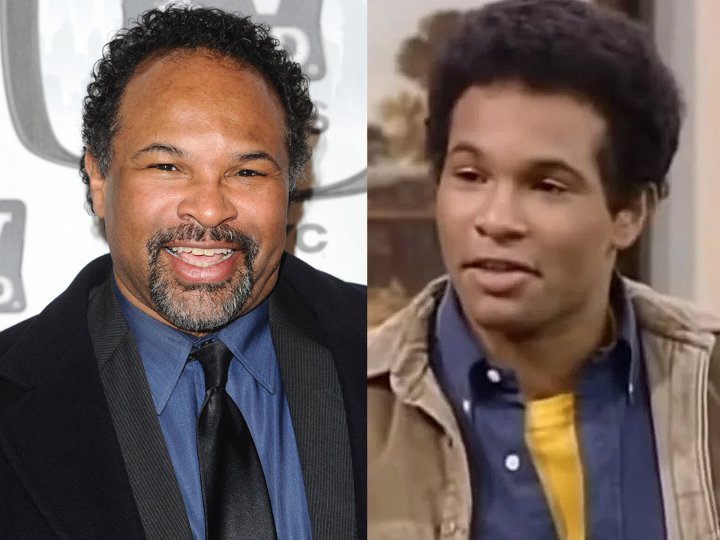 Iran’s Attack on Israel
Iran’s Attack on Israel


5 min read
Sticks and stones may break our bones, but words – ugly, gossipy, cruel words – can eventually break a whole society. Just look at what ours has turned into.
Celebrity gossip is social pollution, dirtier and more destructive than anything emitted by industrial smokestacks or automobile tailpipes. Just ask Geoffrey Owens.
The 57-year-old actor, best known for playing Dr. Elvin Tibideaux on "The Cosby Show" in his 20s, was thrust into the spotlight recently when a shopper surreptitiously snapped unflattering pictures of him bagging groceries at a Trader Joe's in Clifton, N.J., and sent them to the media. After the Daily Mail and Fox News published them, they instantly went viral, and Owens was widely mocked for working a low-status job. "I was like, wow, all those years of doing the show and you ended up as a cashier," the woman who took the pictures told the Daily Mail. Eventually the "job-shaming" of Owens sparked a backlash in his defense, but not before millions of people had joined in smirking at his reduced circumstances.
 Geoffrey Owens
Geoffrey Owens
In her 2000 memoir, "Natural Blonde," the late gossip columnist Liz Smith praised gossip as "one of the great luxuries of a democracy," and claimed that people only have an appetite for scuttlebutt about the rich and famous when there is nothing more important to concern themselves with. "Should the day come when we are enduring big, black headlines about war, famine, terrorism, and natural disaster," Smith confidently predicted, "then that kind of news will drive gossip underground and out of sight."
She couldn't have been more wrong. The years since 2000 have seen no end of war, famine, terrorism, and natural disasters. Yet the torrent of gossip is greater than ever. Avoiding this bilge is virtually impossible for anyone who lives a normal modern life: It comes at you when you turn on the TV, when you go online, when you pick up groceries, when you read the daily paper.
The line between scandalous tittle-tattle and legitimate news has been crossed so often that it can barely be detected. Sure, you can still feed your gossip addiction while waiting in the checkout line at the supermarket, which is where the other day I noted tabloid headlines blaring "Convict Cosby hiding his cash," "Angelina loses: The kids choose Brad," and "The Queen's heartbreak – suddenly alone." But supposedly respectable news organizations are now just as happy to exploit the storms and stresses of celebrities' lives.
Celebrity gossip feeds a bottomless desire for Schadenfreude, the smug pleasure we often take in the embarrassment or miseries of others.
Celebrity gossip, usually derogatory, feeds a bottomless desire for Schadenfreude, the smug pleasure we often take in the embarrassment or miseries of others. The phenomenon has been known since antiquity, but researchers today can actually see that pleasure manifested in brain activity: A study published in the journal Social Neuroscience recorded the brainwave patterns of a group of students as they listened to gossip, both positive and negative, about themselves and about celebrities. The students were also asked to rate the stories, and about the positive gossip and the gossip about themselves, the brain scans and the students' ratings matched. When it came to negative gossip about celebrities, however, there was a sharp disconnect, as neuropsychologist Christian Jarrett explained in an essay for Wired:
"While the students claimed there was nothing especially entertaining about the negative celebrity gossip," he wrote, the region of their brain associated with experiencing pleasure "was extra active when they heard stories of movie stars doing naughty things." Simultaneously, there was extra activity in the brain element that regulates self-control, "suggesting that the students were trying to conceal their guilty pleasure."
Today the pleasure commonly outweighs the guilt, as the vast scope of today's gossip-industrial complex bears out. But there are good reasons why moral leaders have long denounced rumor-mongering and backbiting – why it was forbidden in the Bible, and inveighed against by Judaism, Christianity, and Islam alike.
Louis Brandeis and his law partner Samuel Warren laid out some of those reasons in a famous law review article in 1890. "Each crop of unseemly gossip," they wrote, "becomes the seed of more, and . . . results in the lowering of social standards and of morality. Even gossip apparently harmless, when widely and persistently circulated, is potent for evil. It both belittles and perverts . . . inverting the relative importance of things, thus dwarfing the thoughts and aspirations of a people."
The celebrity-gossip culture routinely exposes personal, intimate information to the prying eyes of people who would never want their own private details publicized. It does so crudely and insensitively, and in the process makes its avid consumers cruder and more insensitive. It isn't just mean and obnoxious: It normalizes meanness and obnoxiousness. In so doing, gossip damages every party it touches – the one who says it, the one who listens to what is said, and the one it is said about.
The woman who peddled those pictures of Geoffrey Owens now claims to regret her actions.
"I don't know why I snuck a picture," she told People magazine. "I figured everybody does it. . . . I didn't even think about it."
Just so. Everyone does it. Everyone is diminished by it. Sticks and stones may break our bones, but words – ugly, gossipy, cruel words – can eventually break a whole society. Just look at what ours has turned into.
The column originally appeared in The Boston Globe.
